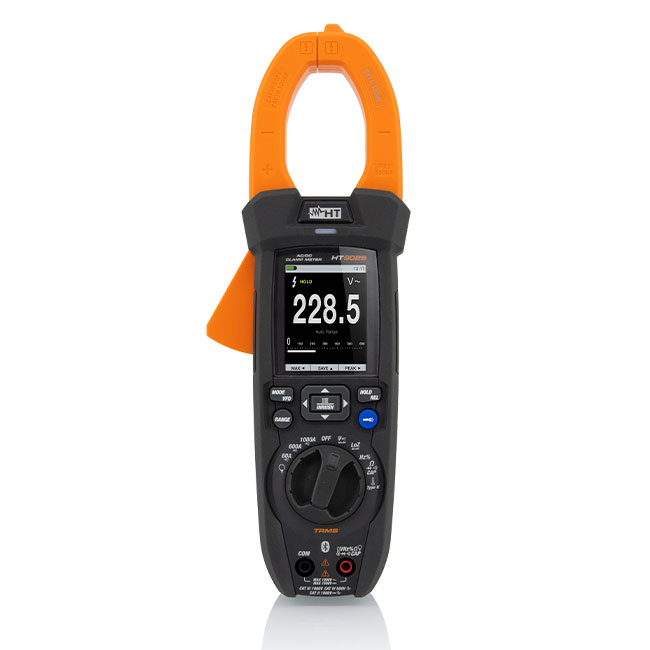Solar panels have become a very popular means of producing sustainable electricity for many homes and businesses. To get a return on the investment in terms of energy savings, however, it is important that the solar panels are performing as they should be and that you can optimise an installation. So like most electrical equipment, there is a testing regime you need to go through to monitor performance and ensure various safety aspects. When installing solar panels, they are often installed in a series connected together, in order to produce the solar electricity required, but this is not straightforward, and it is not a simple case of installing as many solar panels as you like. This installation needs to be tested, and one of the key tests we need to carry out is the open circuit voltage test.
What is the open circuit voltage?
The open circuit voltage is the voltage that the solar panel outputs when there is no load connected to it, and it is a simple case of measuring the voltage across the positive and negative terminals. The open circuit voltage therefore represents the maximum voltage that your solar panel can produce when under standard test conditions. However, when multiple solar panels are installed together, and connected in series, the multiple open circuit voltages accumulate and are added together. So in this case the open circuit voltage test performs a very important role, because it indicates the maximum number of solar panels which can be installed and connected together, and then connected to the inverter or charge controller, without overloading them.
For this reason, you need to work out how many panels you can install within your system, before you install them, and the open circuit voltage test allows you to do that. Exceeding the voltage limit of your system may cause a failure or compromise the lifespan of the inverter or charge controller. Of course, after installation, you need to periodically carry out an open circuit voltage test to monitor this and ensure that the maximum voltage is not being exceeded.
Carrying out an open circuit voltage test with a clampmeter or multimeter
To carry out an accurate open circuit voltage test of a solar panel you will need a number of things:
- The open circuit voltage and current ratings of the panel. These are specifications which should be indicated on the panel itself.
- You need to disconnect the panel from its battery and the regulator.
- You need to angle the panel towards the sun, if it isn’t already, to ensure optimum conditions for the test.
- You need sunlight. You should not carry out the test at night or on a dark, overcast day, because you will not get accurate results. Ideally you should perform the test in the morning of a bright, sunny day. This ensures that the solar panel is cool and the open circuit voltage reading you obtain will be at its highest.

Test Instrument Solutions supply a full range of solar PV test equipment, and the clampmeter you can use for this test is the HT9025. This is a 1500v DC TRMS digital clampmeter which can measure voltage up to 1500 volts.
- Disconnect the solar panel from the regulator and battery
- Set the multimeter to the DC setting
- Connect the positive lead of the multimeter to the positive terminal or wire of the solar panel. Then connect the negative lead to the negative terminal accordingly.
- The clampmeter should show the open circuit voltage reading on the LCD screen.
Please note that this section is for information purposes only. Anyone using equipment referred to in this section must be suitably qualified and/or experienced within the respective field. If in doubt before use, please consult a qualified electrician or engineer & thoroughly read all instruction booklets.